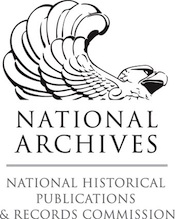The “Charleston Branch of the NAACP Papers” are Live on the LCDL!
We at the Lowcountry Digital Library (LCDL) are proud to present the "Charleston Branch of the National Association for the Advancement of Colored People Papers, 1920-1995." The digital availability of this material was made possible through generous support from the National Historical Publications and Records Commission (NHPRC) grant program, allowing the LCDL to digitize collections from the Avery Research Center for African American History and Culture dealing specifically with Civil Rights in the Charleston and Lowcountry region of South Carolina.
The National Association for the Advancement of Colored People (NAACP) was started on February 12, 1909, partly in response to the prevalence of lynching of African-Americans in America and the 1908 race riot that occurred in Springfield, Illinois. The Charleston Branch of the NAACP was founded in February 1917 by Edwin Harleston. The branch was established to advocate for the rights of African Americans in South Carolina and Charleston. The Charleston NAACP serves as a space for African-Americans to make complaints against discriminatory practices; and to challenge social and economic inequalities. In addition, they spearheaded voter registration and education campaigns.
The digitized portions of this collection primarily includes correspondence, financial statements, pamphlets, and periodicals regarding NAACP matters such as administration, programs including Economic Development and Fair Share, Hurricane Hugo, education, finances, housing, and labor industry.
Highlights from this collection include a handwritten letter of thanks to the Charleston Branch of the NAACP regarding Hurricane Hugo relief, a NAACP memorandum and "NAACP News" press release regarding the "controversial book of Ralph Abernathy in which he had some unflattering things to say about Dr. Martin Luther King, Jr.," and a NAACP statement regarding the an Economic Dignity and Awareness Demonstration boycotting Food Lion, Inc.
We hope that you find the digitized portions of this collection useful in your research and that it sheds some light on an important aspect of Lowcountry history!
This collection was digitized and made freely available online through the generous support of the National Historical Publications & Records Commission.

